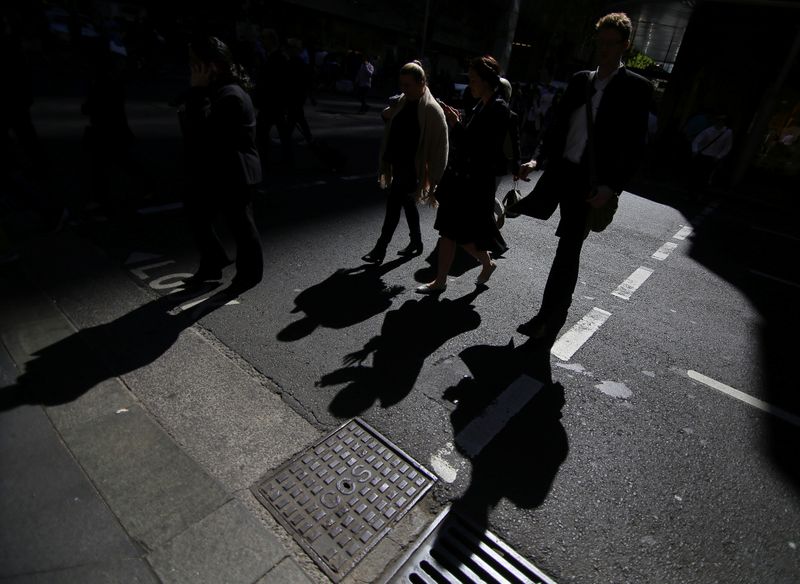By Wayne Cole and Swati Pandey
SYDNEY (Reuters) - Australia's economy expanded by more than expected last quarter, erasing the risk of a recession even as raging bushfires and the coronavirus crisis wreaked havoc with tourism and travel at the start of the new year.
Wednesday's data from the Australian Bureau of Statistics (ABS) showed the A$2 trillion ($1.3 trillion) economy accelerated by 0.5% last quarter. Encouragingly, the previous quarter was revised upwards to show 0.6% increase from 0.4% earlier.
That took the annual pace to 2.3%, still well below the 2.75% that policy makers consider "trend".
Economists had predicted a quarterly rate of 0.3%, according to a median of 16 economists polled by Reuters.
The stronger-than-expected data sent the local dollar rising 0.4% to $0.6611 from $0.6577 before.
The outlook is murkier though, as the coronavirus epidemic is seen dealing a greater blow to world economies than earlier expected.
Such are the risks that the Reserve Bank of Australia (RBA) cut interest rates to an historic low of 0.5% this week, just part of an urgent global response to the virus that saw the Federal Reserve spring an emergency policy easing.
Prime Minster Scott Morrison has also flagged an imminent burst of targeted fiscal stimulus, a major u-turn for the conservative government that has long scorned such action.
"We view this shift in fiscal policy as a very positive development, but still expect further support from the RBA will be required given the extent of the shock and since the economy was underperforming prior to the outbreak," said Alan Oster, chief economist at NAB.

He sees another quarter point rate cut in April and suspects the central bank would then have to consider quantitative easing including buying government bonds.